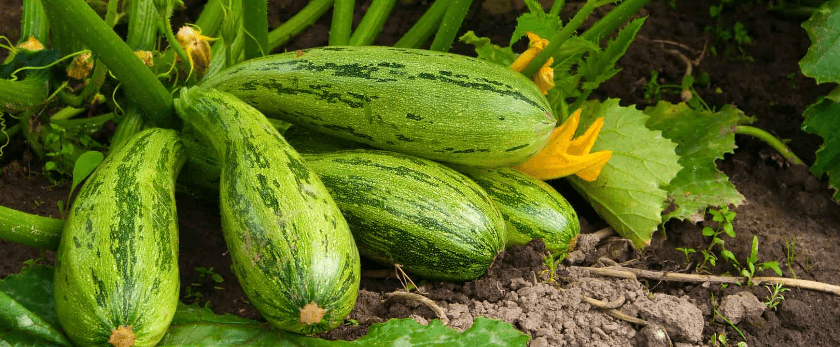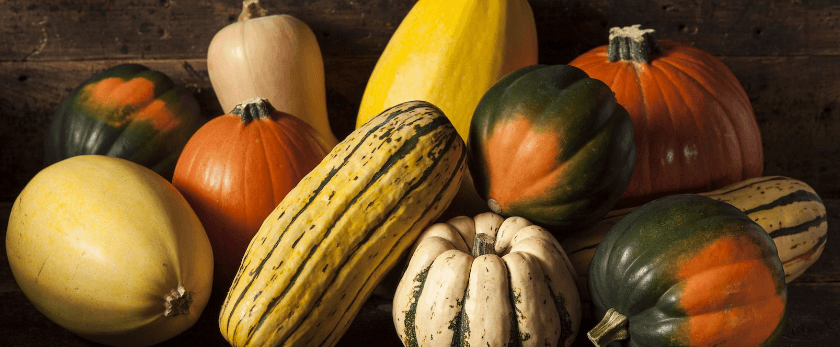Squash is a versatile and nutritious vegetable that can be grown in your own backyard. Not only is it easy to grow, but it also has a low carbon footprint and can be a great addition to a sustainable lifestyle. In this article, we will discuss the steps to successfully grow squash, including caring for the plant, the best time to grow, and common problems that may arise.
Caring for Squash
Watering
Squash plants require consistent watering to thrive. They prefer moist, but not waterlogged, soil. It is important to water the plants deeply, at least once a week, rather than shallowly and frequently. This will encourage the roots to grow deeper into the soil, making the plant more resilient to drought.
During hot and dry weather, it may be necessary to water the plants more frequently. However, be careful not to overwater as this can lead to root rot. A good way to check if your squash plants need watering is to stick your finger into the soil. If the top inch of soil is dry, it's time to water.
Light
Squash plants require full sun to grow and produce fruit. This means they need at least 6-8 hours of direct sunlight per day. If you are growing squash in a container, make sure to place it in a sunny spot or use a grow light to supplement the natural light.
Soil
Squash plants prefer well-draining, fertile soil. Before planting, it is recommended to amend the soil with compost or aged manure to provide the necessary nutrients for the plant to thrive. The ideal pH for squash is between 6.0-6.8.
Fertilizer
Squash plants are heavy feeders and require regular fertilization to produce a bountiful harvest. You can use organic fertilizers such as compost, aged manure, or a balanced organic fertilizer. It is important to follow the instructions on the fertilizer package and not to over-fertilize, as this can lead to excessive foliage growth and fewer fruits.
Pruning
Pruning is not necessary for squash plants, but it can help improve air circulation and reduce the risk of diseases. If you notice any dead or diseased leaves, remove them promptly. You can also prune off any excessive foliage to allow more sunlight to reach the fruits.

Best Time to Grow Squash
The best time to grow squash depends on your location and climate. In general, squash can be planted in the spring after the last frost date. However, if you live in a warmer climate, you can also plant squash in the fall for a second harvest.
It is important to note that squash plants are sensitive to cold temperatures and will not survive frost. If you are planting in the spring, make sure to wait until the soil has warmed up to at least 60°F (15°C) before planting.
Common Problems with Squash
Pests
Squash plants are susceptible to a variety of pests, including squash bugs, cucumber beetles, and squash vine borers. These pests can cause damage to the leaves, stems, and fruits of the plant. To prevent pest infestations, it is important to keep the garden clean and free of debris, rotate crops, and use natural pest control methods such as handpicking and introducing beneficial insects.
Diseases
Squash plants can also be affected by various diseases, such as powdery mildew, bacterial wilt, and mosaic virus. These diseases can cause stunted growth, yellowing leaves, and reduced fruit production. To prevent diseases, make sure to plant disease-resistant varieties, avoid overhead watering, and practice good garden hygiene.
Blossom End Rot
Blossom end rot is a common problem with squash plants, where the bottom of the fruit turns black and rots. This is caused by a calcium deficiency in the soil or irregular watering. To prevent this, make sure to water consistently and add calcium-rich amendments to the soil.
Conclusion
Growing squash is a rewarding and sustainable way to add fresh produce to your diet. By following these tips on caring for squash, choosing the right time to grow, and addressing common problems, you can successfully grow your own squash at home. Remember to always use responsible disposal methods for any garden waste and enjoy the delicious and nutritious fruits of your labor. Happy gardening!










